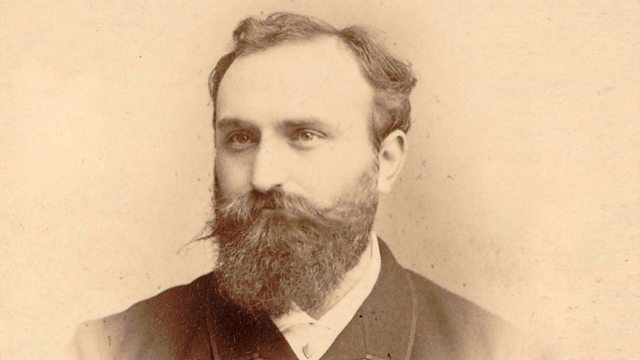
A friendship with Debussy
Donald Macleod explores the circumstances of Chausson’s brief yet intense friendship with Debussy.
Donald Macleod explores the circumstances of Chausson’s brief, yet intense friendship with Debussy.
Amédée-Ernest Chausson grew up in Paris during a period of great political, social and economic upheaval in France. Born in 1855, he was fifteen at the outbreak of the Franco-Prussian; he lived through the collapse of the Second Empire and the advent of the Third Republic. However Chausson’s family was materially little affected by these dramatic events, quite the opposite in fact. His father profited from the 1850s onwards, working as a building contractor for Baron Haussmann, the man Napoleon III had entrusted to remodel the narrow streets of medieval Paris into wide open boulevards. Even after Napoleon was deposed, the re-construction of the capital city continued. Chausson’s bourgeois lifestyle reflects the salon society of the mid nineteenth century, with an extensive art collection adorning the walls of his family’s substantial residence at 22 Boulevard de Courcelles a stone’s throw from leafy Parc Monceau. Chausson remained in the same mansion with his wife and their three children. Supported by a private income, unlike most artists and musicians within his large circle of acquaintances, he was able to devote himself to composing entirely without any pressure to provide financially for his family. That’s not to say that Chausson’s life was without a care in the world. Critics saw him as a dilettante rather than a serious musician. His relatively small output reflects the agonies of doubt in his mind. His battle to find his own voice at a time when Wagner had cast a long shadow over French music resulted in his only opera taking almost ten years to complete. This struggle for artistic recognition was only just turning a corner when he died unexpectedly at the age of 44 in 1899.
Family holidays and boating trips on the River Marne with Chausson and his close relatives set the tone for a young Debussy’s friendship with the older composer. Yet after a year of intense correspondence and acquaintance, this artistically fruitful relationship came to an abrupt end.
Concert in D major, Op 21, for piano, violin and string quartet (Sicilienne)
Alexander Melnikov, piano
Isabelle Faust, violin
Salagon Quartet
4 Mélodies, Op 8
No 1 Nocturne
No 2 Amour d’antan
Nathalie Stutzmann, contralto
Inger Södergren, piano
Symphony in B flat Op 20 (1st mvt)
Radio Philharmonic Orchestra, Netherlands
Jean Fournet, conductor
Poème de l’amour et de la mer, Op 19
Jessye Norman, soprano
Orchestre Philharmonique de Monte-Carlo
Armin Jordan, conductor
Producer: Johannah Smith for ����ý Wales
Last on
More episodes
Music Played
-
![]()
Ernest Chausson
Sicilienne (Concerto in D major for violin, piano and string quartet)
Performer: Isabelle Faust. Performer: Alexander Melnikov. Performer: Salagon Quartet. -
![]()
Ernest Chausson
Nocturne; Amour d'Antan (4 Melodies, Op 8)
Performer: Inger Södergren. Singer: Nathalie Stutzmann. -
![]()
Ernest Chausson
Symphony in B Flat Major, 1st movement
Orchestra: Netherlands Radio Philharmonic Orchestra. Conductor: Jean Fournet.- Regis RRC 1328.
- Regis RRC 1328.
- 1.
-
![]()
Ernest Chausson
Poeme de l'amour et de la mer
Singer: Jessye Norman. Orchestra: Monte-Carlo Philharmonic Orchestra. Conductor: Armin Jordan.- Erato 2292 45368-2.
- Erato.
- 1.
Broadcast
- Wed 5 Sep 2018 12:00����ý Radio 3
Beethoven Unleashed – the box set
What was really wrong with Beethoven?
Composers A to Z
Who knew? Five eye-opening stories from Composer of the Week
Five reasons why we love Parry's Jerusalem
What is the strange power of Jerusalem which makes strong men weep?
A man out of time – why Parry's music and ideas were at odds with his image...
The composer of Jerusalem was very far from the conservative figure his image suggests.
Composer Help Page
Find resources and contacts for composers from within the classical music industry.





